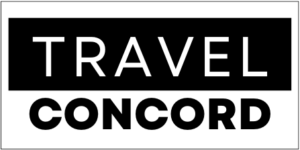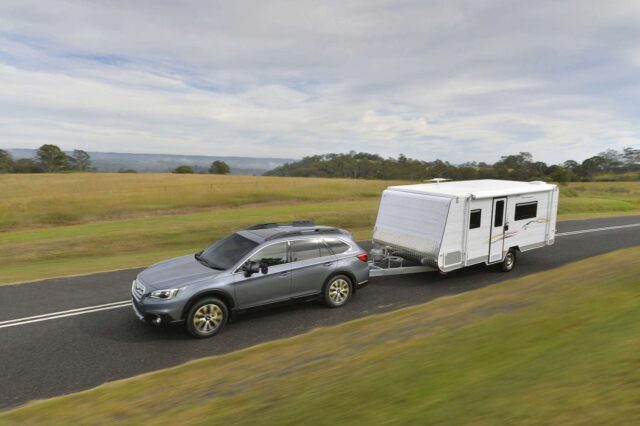If you’re planning to explore the Golden State with a travel trailer, you might be wondering about the insurance requirements. Whether you’re a seasoned traveller or a new trailer owner, understanding the ins and outs of insurance is crucial to protecting your investment and ensuring peace of mind on the road. This comprehensive guide will address everything you need to know about insuring your travel trailer in California, from legal requirements to coverage options and tips for finding the best policy.
Do You Need Insurance for a Travel Trailer in California?
In California, insurance for a travel trailer is not legally required by the state if the trailer is towed by a vehicle that is insured. However, just because it’s not required by law doesn’t mean you should skip it. Insuring your travel trailer is highly recommended to protect yourself from potential risks, such as accidents, theft, or damage, which could lead to significant financial loss.
Legal Requirements: What the Law Says
While California doesn’t mandate insurance specifically for travel trailers, there are a few important points to consider:
- Vehicle Liability Insurance: California law requires that the vehicle towing the trailer must be insured. This liability insurance covers damages or injuries you may cause to others in an accident while towing the trailer. However, this insurance does not cover the trailer itself or its contents.
- Loan or Lease Requirements: If you financed the purchase of your travel trailer, your lender or leasing company might require you to carry full coverage insurance. This includes both comprehensive and collision coverage, ensuring that the trailer is protected against damage, theft, and other risks.
- Campsite Requirements: Some campsites or RV parks may require proof of insurance before allowing you to stay. This is to ensure that you can cover any potential damages or liabilities while on their property.
Read Also, How to Be a Travel Ultrasound Tech: A Comprehensive Guide
Why You Should Consider Insuring Your Travel Trailer
Even though it’s not legally required, there are several compelling reasons to insure your travel trailer:
- Protection Against Accidents
Accidents can happen at any time, whether on the road or while parked. Insurance can cover the cost of repairs to your trailer if it’s damaged in an accident, potentially saving you thousands of dollars.
- Coverage for Theft and Vandalism
Travel trailers are valuable assets and can be targets for theft or vandalism. Comprehensive insurance covers these risks, giving you peace of mind when your trailer is parked at home, at a campsite, or in storage.
- Natural Disasters and Weather Events
California is known for its natural disasters, including wildfires, earthquakes, and floods. If your travel trailer is damaged by one of these events, insurance can help cover the repair or replacement costs.
- Liability Coverage
If someone is injured while in or around your travel trailer, you could be held liable. Insurance can provide liability coverage, helping to cover medical expenses and legal fees if you’re sued.
- Personal Belongings
Travel trailers often carry personal belongings, from camping gear to electronics. Some insurance policies cover the contents of your trailer, protecting your valuables from theft, damage, or loss.
Types of Travel Trailer Insurance Coverage
When considering insurance for your travel trailer, it’s essential to understand the different types of coverage available. Here’s a breakdown of the most common options:
- Liability Coverage
Liability coverage is usually included with the insurance of the vehicle towing the trailer. It covers bodily injury and property damage that you may cause to others in an accident. However, this coverage does not extend to the trailer itself.
- Comprehensive Coverage
Comprehensive coverage protects your travel trailer against non-collision-related incidents, such as theft, vandalism, fire, flood, and natural disasters. If your trailer is damaged or stolen, comprehensive coverage will help pay for repairs or replacement.
- Collision Coverage
Collision coverage pays for damages to your travel trailer if it’s involved in an accident, regardless of who is at fault. This includes accidents with other vehicles, objects, or even rollovers.
- Uninsured/Underinsured Motorist Coverage
This type of coverage protects you if you’re in an accident with a driver who doesn’t have insurance or doesn’t have enough insurance to cover the damages. It can also cover injuries sustained by you or your passengers.
- Personal Effects Coverage
Personal effects coverage protects the belongings inside your travel trailer, such as clothing, electronics, and camping gear. If these items are stolen or damaged, this coverage will help cover the replacement costs.
- Full-Timer Coverage
If you live in your travel trailer full-time, you may need specialized coverage. Full-time coverage is similar to homeowners insurance and provides liability and personal property protection for those who use their trailer as their primary residence.
- Roadside Assistance
Roadside assistance coverage can be a lifesaver if you experience a breakdown or other issues while on the road. This coverage typically includes towing, flat tyre changes, battery jump-starts, and fuel delivery.
- Vacation Liability
Vacation liability coverage provides liability protection while your trailer is parked at a campsite or RV park. It covers injuries or damages that occur while your trailer is being used as a temporary residence.
How Much Does Travel Trailer Insurance Cost in California?
The cost of insuring a travel trailer in California can vary widely based on several factors, including:
- Value of the Trailer: The more expensive your trailer, the higher your insurance premiums will be.
- Type of Coverage: Full coverage, including comprehensive and collision, will cost more than liability-only coverage.
- Deductibles: Higher deductibles typically result in lower premiums, but you’ll pay more out of pocket in the event of a claim.
- Location: Where you store and use your trailer can impact your insurance costs. Areas prone to natural disasters or high crime rates may result in higher premiums.
- Driving Record: A clean driving record can help lower your insurance costs, while accidents or traffic violations may increase your premiums.
- Usage: How often you use your trailer and whether you live in it full-time or part-time can also affect the cost of insurance.
On average, you can expect to pay anywhere from $250 to $1,000 per year for travel trailer insurance in California, depending on the factors mentioned above.
Tips for Finding the Best Travel Trailer Insurance in California
To get the best coverage at the best price, follow these tips:
- Shop Around
Different insurance companies offer different rates and coverage options, so it’s essential to compare quotes from multiple providers. Use online comparison tools or work with an insurance agent to find the best deal.
- Bundle Policies
If you already have auto or home insurance, consider bundling your travel trailer insurance with the same provider. Many insurers offer discounts for bundling multiple policies, which can help you save money.
- Consider Your Coverage Needs
Think about how you use your travel trailer and what types of coverage are most important to you. For example, if you frequently travel to areas prone to natural disasters, comprehensive coverage is essential.
- Ask About Discounts
Many insurance companies offer discounts for things like having a clean driving record, taking a safety course, or installing anti-theft devices on your trailer. Be sure to ask about any available discounts.
- Read the Fine Print
Before purchasing a policy, carefully read the terms and conditions to understand what’s covered and what’s not. Make sure the policy meets your needs and that there are no surprises if you need to file a claim.
- Review Your Policy Annually
Your insurance needs may change over time, so it’s a good idea to review your policy annually. Make any necessary adjustments to ensure you have the right coverage at the best price.
What to Do if You’re in an Accident with Your Travel Trailer
If you’re involved in an accident with your travel trailer, follow these steps:
- Ensure Safety: Make sure everyone involved is safe and seek medical attention if necessary.
- Move to a Safe Location: If possible, move your vehicle and trailer to a safe location to avoid further accidents or hazards.
- Call the Authorities: Contact the police to report the accident and obtain a police report, which will be necessary for filing an insurance claim.
- Exchange Information: Exchange contact and insurance information with the other party involved in the accident.
- Document the Scene: Take photos of the accident scene, including any damage to your trailer, other vehicles, and the surrounding area.
- Notify Your Insurance Company: Contact your insurance provider as soon as possible to report the accident and begin the claims process.
- Get an Estimate for Repairs: Obtain an estimate for the cost of repairs to your travel trailer, which your insurance company may require.
Read Also, List of Tech-related Items That Are Not Allowed in a Flight
Conclusion
While it’s not legally required to insure a travel trailer in California, doing so is a smart decision that can protect you from significant financial loss. Insurance provides coverage for accidents, theft, natural disasters, and liability, ensuring that your travel adventures remain enjoyable and stress-free. By understanding the types of coverage available, shopping around for the best rates, and reviewing your policy regularly, you can find the right insurance to meet your needs and budget.
Whether you’re a weekend warrior or a full-time traveller, having the right insurance for your travel trailer is an essential part of your journey. With the peace of mind that comes from knowing you’re protected, you can focus on what matters: enjoying the open road and creating unforgettable memories.

























